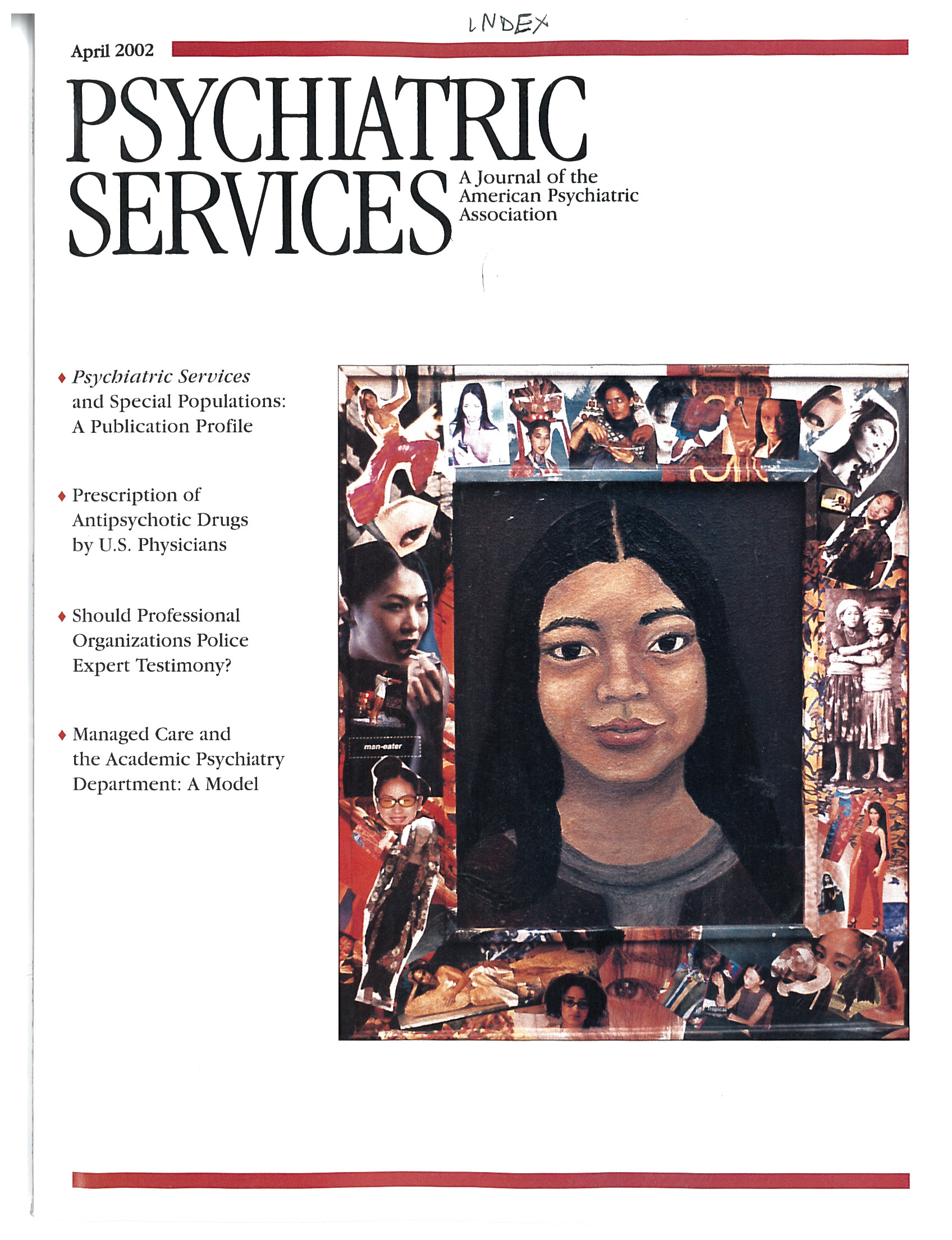Special Populations in the Journal Since 1950
The mental health needs of special populations—racial or ethnic groups, the elderly, women, children, gays and lesbians, persons with mental retardation, and others—often differ in specific ways from those of the general population. Despite these variations, research reported in psychiatric publications has long tended to address the more mainstream areas of mental health. Carl C. Bell, M.D., and Johnny Williamson, M.D., examined Psychiatric Services' coverage of special populations over the past half century. They found that about 7 percent of the articles published in the journal between 1950 and 1999 focused on special populations. More than a third of these articles were about children and adolescents, just under a third were on the elderly, and about a fifth were on racial or ethnic groups. Special sections or special issues on special populations, often with guest editors, accounted for a large proportion of such articles, notably those about women. The authors suggest that the practice of using guest editors has provided a leadership component that can be used to further advantage in generating research on special populations (see page 419).
The Leadership Academy Program for Advocacy Skills
The voice of the consumer has often gone unheard in modern health care, particularly in the era of managed care. Consumers of mental health care have had additional difficulties being heard because of stigma, paternalism, cognitive impairments, or lack of self-confidence. In this issue's Managed Care column, in the fourth installment of a continuing series on strengthening the consumer voice in managed care, James E. Sabin, M.D., and Norman Daniels, Ph.D., describe the Leadership Academy, its origins, its program, and some of its achievements over the ten years since its founding as the Idaho Leadership Academy. With the help of funding from the Center for Mental Health Services (CMHS), the organization was formed in the early 1990s to improve the advocacy skills of mental health care consumers and their families. CMHS funding also helped in the forming of a second Leadership Academy in West Virginia in 1995 as well as of CONTAC (Consumer Organization and Networking Technical Assistance Center) in 1998, which has enabled the academy to maintain a presence in 16 states. The academy's skills development program, which involves three- to four-day training sessions, has produced several hundred graduates. Follow-up networking activities, a vital part of the program's model, are used in collaborative projects and for continued learning (see page 405).
Antipsychotics Prescribed in Office-Based Practices
The introduction of antipsychotic medications in the early 1950s fundamentally changed the treatment of serious mental illness. The number of prescriptions for antipsychotics grew rapidly in the two decades that followed, but then began to decline as awareness about side effects and concern about overuse increased. Using data from the National Ambulatory Medical Care Surveys, Richard C. Hermann, M.D., M.S., and his associates examined trends in the prescription of antipsychotics in office-based practices between 1989 and 1997 to evaluate changes in prescription patterns since the advent of the atypical antipsychotics. They found that the number of office visits during which an antipsychotic was prescribed more than doubled between 1989 and 1997. The increase was accounted for by prescription of atypical agents, largely risperidone (23 percent) and olanzapine (17 percent). The authors also looked at variations by demographic and geographic factors, by diagnosis, and by whether the health plan was prepaid or nonprepaid (see page 425).
Professional Organizations Policing Expert Testimony
Expert testimony is often central to judicial proceedings, and many psychiatrists and other mental health professionals present specialized knowledge in court on behalf of one side or the other in civil and criminal cases. But is there any guarantee that the testimony of an expert witness will be reasonable and responsible? In this month's Law & Psychiatry column, Paul S. Appelbaum, M.D., reviews an interesting case that led to a U.S. circuit court judge's strong endorsement of an active role for professional organizations in policing the testimony their members give in court. Although the case had to do with testimony given by a neurosurgeon who appeared as an expert witness for the plaintiff in a malpractice suit, it has implications for expert testimony in other specialties as well. Dr. Appelbaum notes that despite the potential shortcomings of the inherently retrospective review a professional association can conduct, it offers substantial benefits, and the case he describes suggests that such review will be insulated from the threat of liability (see page 389).

